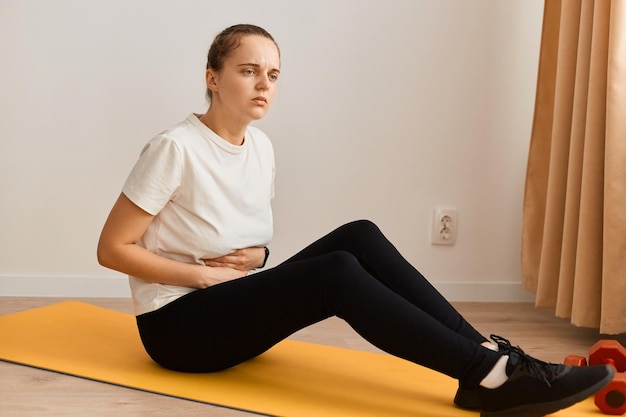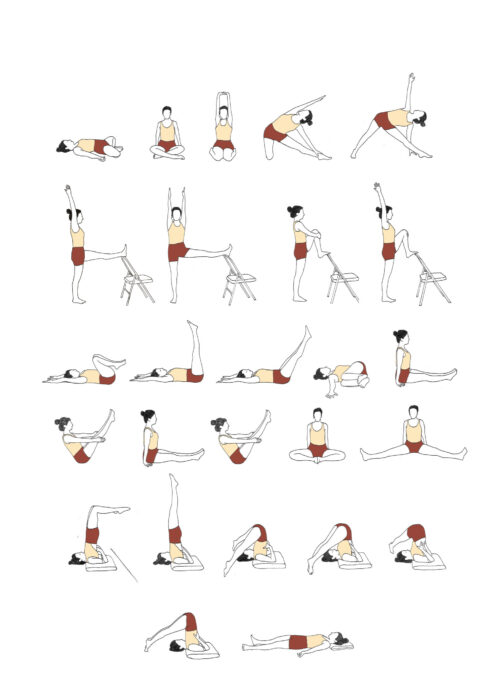
Active relaxation techniques can be used to relieve stress. It is possible to relax by simply breathing in conscious. Focus on your breathing through your nose, mouth and throat. Keep your body still while you deepen your breathing. It's important to notice how your anxiety levels change between the relaxation and before. If you notice any changes in anxiety, it is worth noting them. These exercises will help with anxiety and control your thoughts.
Progressive muscle relaxation can be used as an active relaxation technique. This involves relaxing a specific part of your body by tensing it and then releasing the tension. Begin with one foot, and move your way up. This exercise is great for stress relief, especially during stressful times. Doing this exercise will make your body more flexible to stress. The results will be amazing. Active relaxation is a good habit to develop.

Another technique to reduce anxiety is imagery. Visualize a scene that is calming to you. The sound of waves crashing on the beach will help you relax. You can also visualize the feeling of wind in the face, the salty air smell and the sand between the toes. It's possible to watch a video of active relaxation and use that as a guide. It is an excellent way to relax, reduce stress, and even help you sleep better.
Relaxing before stressful situations is easy with active relaxation techniques. By learning to reduce your stress levels, you'll improve your immune system, heart and blood pressure conditions, and more. These techniques will make it easier to train effectively. They'll also allow you more flexibility when you're anxious. You'll feel happier and your training will be more efficient. Active relaxation techniques should be practiced on a daily basis.
You can try practicing active relaxation techniques by focusing on your breathing. Deep breathing and awareness of your thoughts are some of the most effective techniques for active relaxation. These techniques can help you manage anxiety. It is important that you practice these techniques together with your healthcare providers. They can help manage stress and improve physical health. They can improve your mood and decrease stress. If meditation doesn't work for you, there are other options that might be available.

You can do relaxation in other ways than active relaxation. Pet therapy can help with anxiety. A pet is a good example of a relaxing activity. It can be a great way to relax by playing with your dog. If you are looking for therapy with your pet, you might also consider finger painting or watercolor painting. These activities require little or no cognitive thought and can be done anywhere. A great way to relax and engage your body is through a few minutes of activity each day.
FAQ
What can I do to prevent mental health problems?
Preventing problems with mental health is much easier said than done. Here are some things to keep in your mind.
-
Don't drink alcohol. It can alter your moods and increase your chances of developing depression.
-
Avoid using drugs. Drugs can affect your brain chemistry and make you feel worse.
-
Sleep well. A lack of sleep can cause anxiety and depression.
-
Exercise regularly. Exercise makes you feel happy and releases endorphins.
-
Eat healthy foods. Eating junk food can make you feel sluggish and unhappy.
-
Spend time with your loved ones. Spending quality time with the people you love can lift your mood.
-
Have fun. Have fun with your life.
-
Social media can be exhausting. Social media can make you feel isolated and lonely.
-
Be kind to yourself. Treat yourself nicely, even if you aren't feeling great.
-
Ask for help. Ask for help if you are having difficulty coping. Talking to your family member or friend can be very helpful.
-
Remember to be kind and gentle with yourself. It helps to release stress and tension. It does not mean that anything is wrong.
-
Keep busy. Try doing something you enjoy.
-
You should practice good hygiene. Neglecting to maintain a clean environment can lead to a feeling of unattractiveness and lackluster appearance.
-
Stay connected. Stay positive by connecting with others.
-
Learn how relax. Meditation and yoga can be helpful in reducing stress.
-
Find meaning in what you do. You can find fulfillment in your hobbies and work by finding meaning.
-
You should be focusing on the moment. Focusing on the present moment will allow you to stop worrying about the future.
-
Set goals. Setting goals can motivate you to achieve them.
-
Do something nice to yourself. Doing something nice for yourself can boost your self-esteem.
-
Practice gratitude. Gratitude is a way to be grateful for all the good in your daily life.
-
Volunteer. Volunteering can be a fun way to make a difference and spend your time.
-
Give back. Giving back to others is a way to feel fulfilled.
-
Pay attention to warning signs. Don't be afraid to ask for help if your behavior changes.
Is mental health as important as work?
Working is stressful and mental health is crucial. If you feel stressed at work, you should try to relax by doing something fun like going out with friends, taking a walk outside, or listening to music.
Talk to your boss or supervisor if you feel stressed. They may be able offer suggestions to ease your stress.
You should also take care of your physical well-being as well. You should eat right, exercise, and get plenty of rest.
What do psychologists have to say about mental illness?
Psychologists believe that mental well-being is an integral part of human development. Psychologists also believe that mental wellness is not just about having mental illness free of all causes, but about being mentally healthy.
Psychologists have different views regarding mental health. Some psychologists argue that mental well-being is not important, as there are many people without mental illnesses. Other psychologists think that mental health is essential because without it, we can't function properly.
Why is mental well-being important for students
Students' mental health is crucial because it allows them to be focused on school and excel academically. You won't perform well at school if you don't feel like yourself. Students with depression frequently miss class which can lead to low grades. This could result in students dropping out high school and possibly even college.
Talk to your teachers or parents if you are struggling with depression. They will help you get the treatment you need.
Not everyone with depression requires medication. Talk therapy is effective for many people. A counselor is a great option for anyone who wants to seek help.
Here are five ways to improve your emotional and mental health.
-
Exercise – This is a great way to improve brain function and increase energy levels.
-
Sleep – Getting enough sleep can help reduce anxiety and stress.
-
Nutrition - Eating healthy foods such as fruits and vegetables will help keep your body strong and energized.
-
Meditation - Regular meditation reduces stress and anxiety.
-
Socialization - Spending time with friends and family, keeps us happy and connected.
What are some signs of mental-emotional difficulties?
Mental disorders include any condition that causes significant distress or impairment in functioning. Anxiety, depression, schizophrenia, borderline personality disorder and obsessive compulsive disorder are all examples of mental disorders.
What is Positive Psychology & Why is It Important?
Positive psychology looks at what makes us feel better. Positive psychology's goal is to improve self-esteem, happiness, health, and wisdom.
There are two kinds of positive psychology: trait and process. Trait positive psychology examines how people behave naturally. Positive psychology research explains how certain strategies can be used to reach specific goals.
Statistics
- Neuropsychiatric diseases are the leading cause of death and disability in the U.S., accounting for 18.7 percent of all years of potential lifespan loss and premature mortality.
- Similarly, for positive mental health, there is likely to be substantial agreement about some typical components (e.g., resilience to stress) 6, and controversy about more atypical components (e.g., career consolidation). (ncbi.nlm.nih.gov)
- Appropriate nutrition and exercise are likely among the most efficacious and cost-effective positive mental health interventions. (ncbi.nlm.nih.gov)
- It does have some influence, but not nearly as much as we might think, so focusing less on attaining wealth will likely make you happier (Aknin, Norton, & Dunn, 2009); (positivepsychology.com)
- More than 40 million adults in the United States have an anxiety disorder, but less than 37% of people seek mental health treatment for their symptoms. (talkspace.com)
External Links
How To
How to Determine if a Mental Health Expert is needed
There are some indicators that will alert you to the possibility of professional assistance. If you are noticing any warning signs, consult a doctor.
-
It feels like you are losing control of your life.
-
You have trouble sleeping.
-
Your thoughts seem to race when you try to concentrate.
-
You find yourself thinking about suicide.
-
It is difficult to believe in your own ability to make it through.
-
You feel that life is not worth living.
-
You have lost interest in things you used to love.
-
You've stopped eating.
-
You are now withdrawing.
-
You've tried using alcohol or drugs to deal with stress.
-
You're starting to lose close friends and family members.
-
Other physical symptoms, such as stomachaches, backaches and headaches may also be present.
It is imperative that you see a doctor immediately if you are experiencing any of the above symptoms.